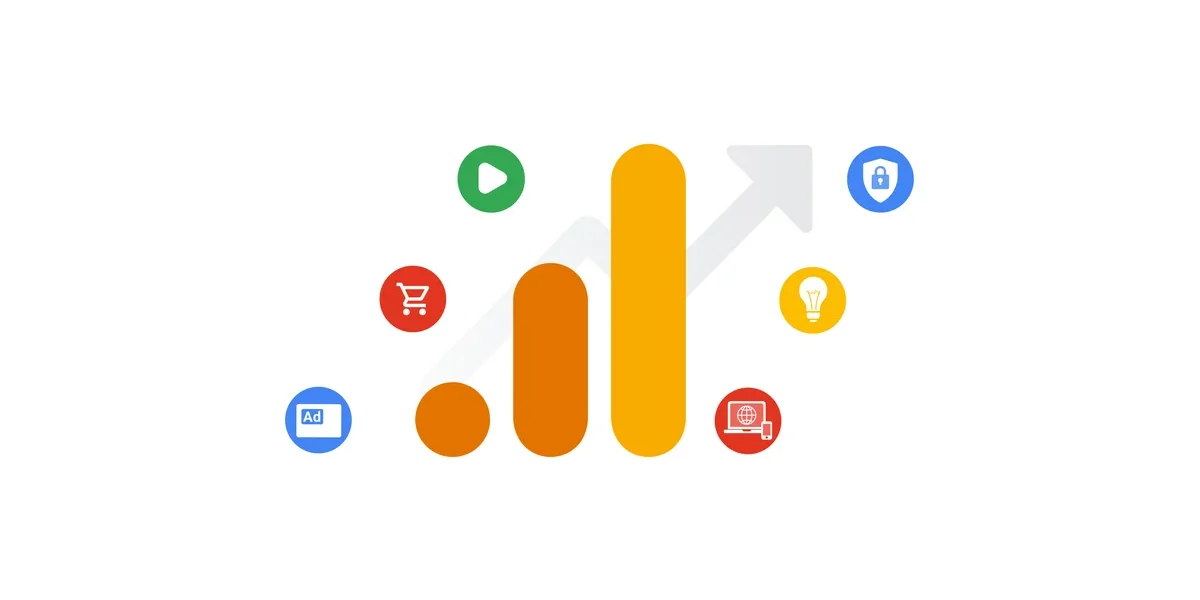Introduction
Google Analytics 4 (GA4) is now the standard platform for tracking website and app data, having fully replaced Universal Analytics (UA). As of July 1, 2024, all access to Universal Analytics data, including API and interface access, will be permanently shut down.
This article outlines key changes, migration steps, and essential tips for making a smooth transition to GA4 while preserving your critical data.
Why Did Google Replace Universal Analytics with GA4?
The transition from Universal Analytics to GA4 is driven by evolving digital marketing trends, data privacy regulations, and advancements in machine learning.
1. Improved Data Privacy and Compliance
- GA4 is built with privacy-first tracking that reduces reliance on cookies.
- It ensures compliance with stricter data privacy laws like GDPR and CCPA.
2. Enhanced Cross-Platform Tracking
- GA4 offers unified tracking for websites, mobile apps, and other digital platforms, allowing seamless data collection across devices.
3. AI-Powered Insights and Predictive Analytics
- GA4 leverages machine learning to provide insights such as purchase probability, churn likelihood, and revenue forecasts.
Key Dates and Timeline for Universal Analytics Shutdown
Important Milestones:
- March 2023: Google automatically created GA4 properties for those who hadn’t migrated manually.
- July 1, 2023: Universal Analytics stopped processing new data for most users.
- January 29, 2024: Key UA features like Lifetime Value reports, Cohort Analysis, and iTunes Conversion Tracking were deprecated.
- March 2024: Further UA features like Demographics, Phone Analytics, and Publisher Reporting were removed.
- July 1, 2024: Universal Analytics data and interface will be permanently deleted for most users.
What Happens After July 1, 2024?
1. Data Deletion
- Starting July 1, 2024, all Universal Analytics data will be permanently deleted.
- Users must export their UA data before this date to prevent data loss.
2. Property Visibility
- After July 1, 2024, any remaining UA properties will display a banner indicating they are queued for deletion.
3. Limited API and Integration Access
- API requests for UA data will no longer function.
- Linked tools like Looker Studio will no longer display UA data.
4. Impact on Ad Campaigns
- UA-based goals, ecommerce tracking, and audience lists will no longer function.
- This can directly impact Google Ads, Search Ads 360, and other linked services.
Steps to Transition from Universal Analytics to GA4
Step 1: Create a GA4 Property
- Sign in to your Google Analytics account.
- In the Admin panel, select your account.
- Click Create Property and choose Google Analytics 4.
- Follow the setup instructions to configure your new GA4 property.
Step 2: Link Google Analytics 4 to Google Tag Manager
- In Google Tag Manager, create a new GA4 Configuration Tag.
- Insert your GA4 Measurement ID and configure triggers for key interactions.
- Publish your container to activate the new GA4 tracking.
Step 3: Export Historical Data from Universal Analytics
- Google offers several export options, including:
- Google Sheets export for simple data preservation.
- BigQuery export for advanced data analysis.
- CSV file download for easy offline access.
Step 4: Set Up Key Events and Conversions in GA4
- Define key actions like form submissions, purchases, and video views as events in GA4.
- Use Google Tag Manager to configure custom event tracking.
GA4 Features That Replace Universal Analytics Tools
Key Replacements in GA4:
- Engagement Rate replaces the Bounce Rate metric for improved engagement insights.
- Exploration Reports provide advanced data analysis capabilities, replacing the need for Cohort Analysis and Model Explorer.
- Predictive Metrics offer forward-looking insights, filling gaps left by UA’s Conversion Probability report.
Advertising Features in GA4:
- Improved integration with Google Ads for enhanced audience targeting.
- Enhanced reporting capabilities for measuring conversion pathways.
How to Avoid Data Loss Before July 1, 2024
1. Export Critical Data
- Use Google’s BigQuery Export or CSV download features to retain essential data.
2. Document Key Metrics and Reports
- Identify and record your most important KPIs, goals, and audience segments.
3. Reconfigure Linked Accounts
- Ensure linked platforms like Google Ads and Search Console are correctly integrated with your GA4 property.
Common Mistakes to Avoid When Transitioning to GA4
- Delaying Migration – Postponing the transition risks data gaps.
- Ignoring Key Events – Ensure all important interactions are tracked as events in GA4.
- Overlooking Data Export – UA data will be deleted after July 1, 2024, so exporting historical data is crucial.
FAQs About Google Analytics 4 and Universal Analytics Shutdown
1. What happens if I don’t switch to GA4 before July 1, 2024?
If you haven’t set up GA4 before this date, your analytics data will stop tracking, and all Universal Analytics data will be permanently deleted.
2. Can I recover my Universal Analytics data after July 1, 2024?
No, once UA data is deleted, it cannot be recovered. Be sure to export your data before this date.
3. How can I tell if my property is GA4 or Universal Analytics?
- UA properties start with “UA-XXXXXX-1”.
- GA4 properties are identified by a unique numeric ID without the “UA” prefix.
4. What happens to my Google Ads campaigns using UA conversions?
UA-based conversions will stop tracking. Switch to GA4 key events for continued performance tracking.
5. Can I still access my Universal Analytics 360 data?
UA 360 properties that began a BigQuery backfill before June 30, 2024, will continue until completion.
6. Is GA4 better than Universal Analytics?
Yes, GA4 offers improved insights with AI-powered analytics, event-based tracking, and privacy-first data collection.
Conclusion
The switch to Google Analytics 4 is crucial for businesses to maintain effective data tracking and reporting. By transitioning early, setting up key events, and exporting Universal Analytics data, you can avoid disruptions and ensure your website’s performance insights remain intact.
Embrace the change — GA4’s powerful features will enhance your ability to analyze, predict, and optimize your marketing strategies for long-term success.

